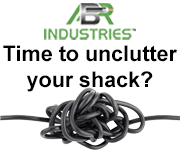ARRL wants to allow encryption on the ham bands!
Discussion in 'Amateur Radio News' started by KH6TY, Apr 9, 2007.
- Thread Status:
- Not open for further replies.
Page 18 of 21
Page 18 of 21
- Thread Status:
- Not open for further replies.










